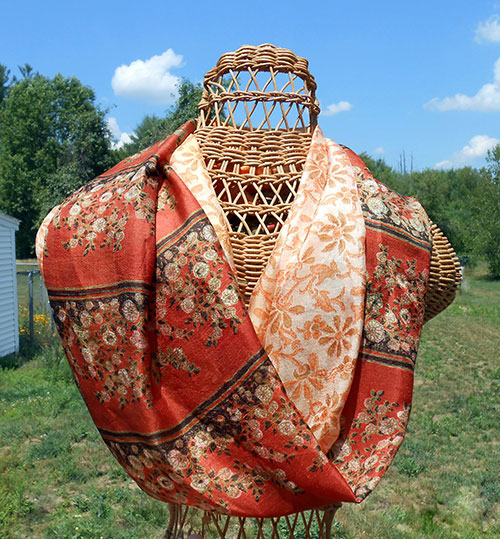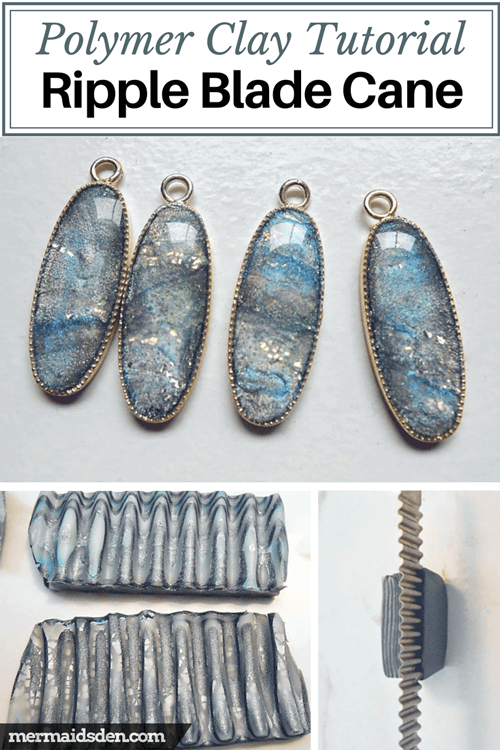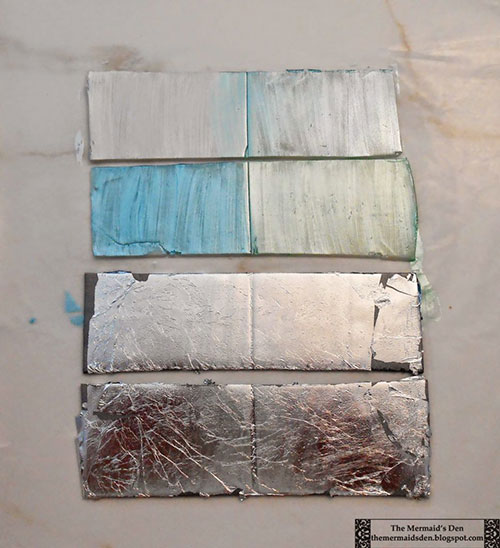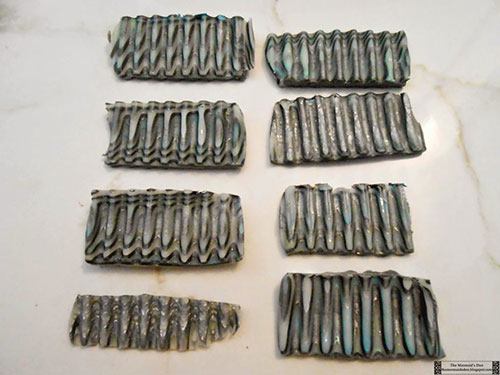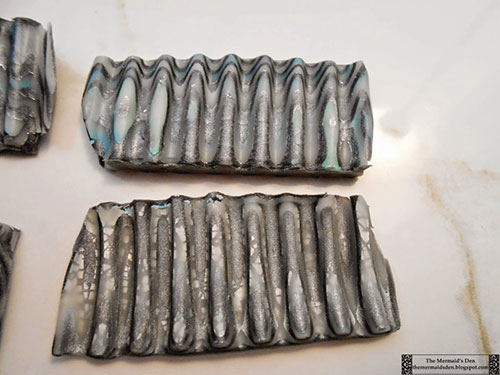Polymer Clay Cane with Ripple Blade Tutorial
Polymer Clay Tutorial: Ripple Blade Cane
In this tutorial, I'll walk you through the process of creating a ripple blade cane with polymer clay, foil, paints, and pigment powders.
Disclosure: This post contains affiliate links, which means I may receive a percentage if you make a purchase using these links. I only link to things I like and use!
Materials used:
- Polymer clay/pasta machine
- Acrylic roller
- Premo Clay 8 Ounces-Translucent
- Premo Sculpey Polymer Clay 2 Ounces-Silver
- Pearl and metallic acrylic paints
- Silver leaf
- Sculpey Super Slicer
- Kemper Klay Kutters Circle Set
- Jewelry setting
of your choice
- Bead Baking Rack
- Kato Liquid Polyclay
- Pearl Ex powders
- Resin

The Polymer Clay Artist's Guide: A Directory of Mixes, Colors, Textures, Faux Finishes, and Surface Effects
contains a wealth of information about polymer clay techniques. I adapted one of the techniques found here to create the following cane, although mine doesn't look as crisp as the one in the book.
First, I rolled out some sheets of translucent polymer clay and silver polymer clay using the pasta machine. I applied the pearl acrylic paints to the translucent sheets and the silver leaf to the silver sheets. Be sure to let the paint dry thoroughly. I ended up with eight sheets roughly the same size.
Polymer Clay Tutorial: Ripple Blade Cane
I then stacked them, alternating silver and translucent clay.
Polymer Clay Tutorial: Ripple Blade Cane
I used the acrylic roller to smoosh the layers together more thoroughly. I then cut it in half and stacked the layers again, rolling them out again. I then used the ripple blade to cut the stack.
Polymer Clay Tutorial: Ripple Blade Cane
That left me with these. In the book, more colors show through the layers, but all I really got was a hint of blue.
Polymer Clay Tutorial: Ripple Blade Cane
Polymer Clay Tutorial: Ripple Blade Cane
I flattened it out with the acrylic roller.
Polymer Clay Tutorial: Ripple Blade Cane
I made beads with the circular cut-outs and embedded the clay in metal settings.
Polymer Clay Tutorial: Ripple Blade Cane
I used a bead baking rack for the beads and added a little bit of pearl ex powder to enhance the color.
Polymer Clay Tutorial: Ripple Blade Cane
Here's what the settings looked like before baking.
Polymer Clay Tutorial: Ripple Blade Cane
I also added Kato liquid polyclay to one of the beads and on top of the clay in the settings.
The bead with the liquid clay coating is on the far right here. It ended up a little lumpy and duller in color than the others. I like the idea of sealing them this way, but I'm not sure how you keep the liquid clay from running.
Polymer Clay Tutorial: Ripple Blade Cane
Here are the settings after baking.
Polymer Clay Tutorial: Ripple Blade Cane
And then after a layer of resin, which smoothed out the craggy appearance above. They look a bit like faux labradorite!
Polymer Clay Tutorial: Ripple Blade Cane
Here's another experiment with this technique. None of the acrylic paint colors showed through here. I think I might be rolling the layers out too thin. Still, you end up with an interesting pattern.
Polymer Clay Tutorial: Ripple Blade Cane
Polymer Clay Tutorial: Ripple Blade Cane
Polymer Clay Tutorial: Ripple Blade Cane
Polymer Clay Tutorial: Ripple Blade Cane
